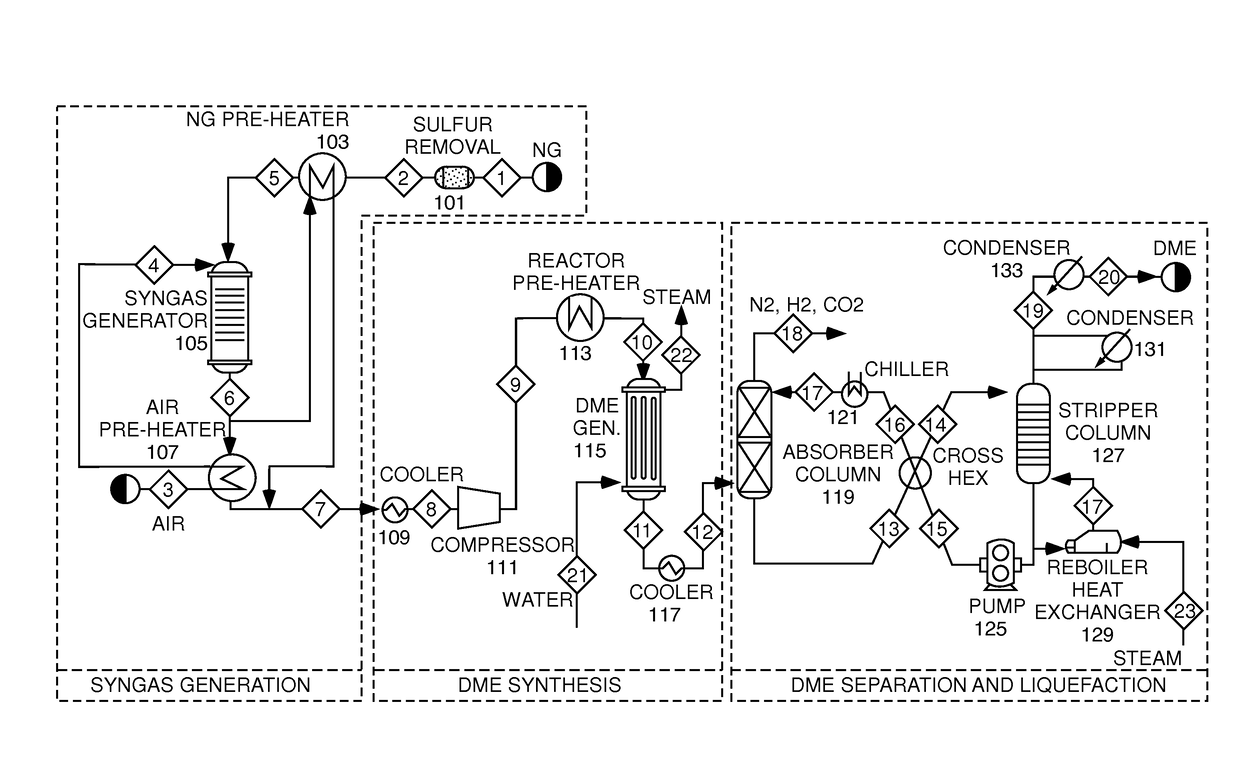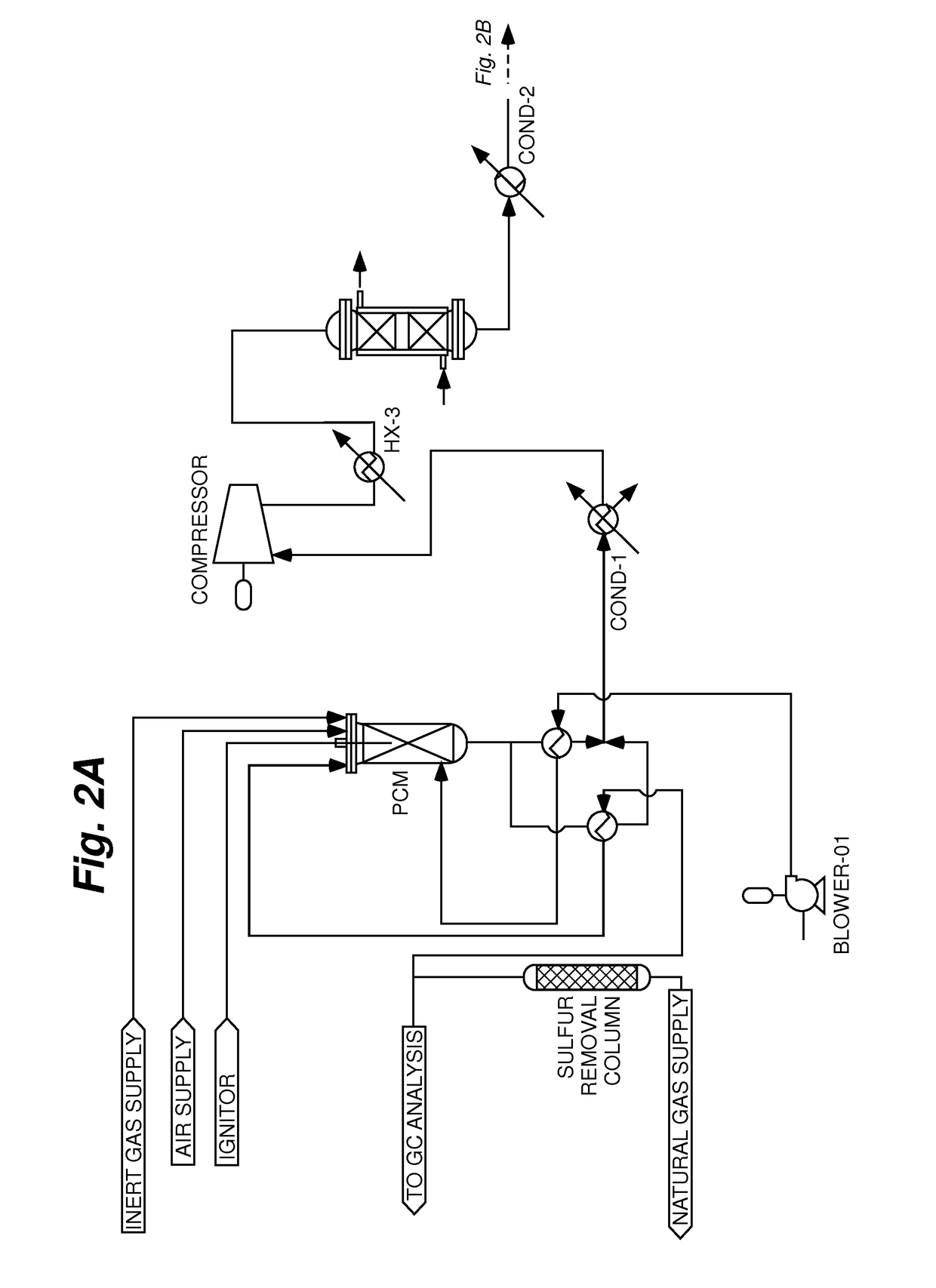Systems and methods for manufacture of dimethyl ether (DME) from natural gas and flare gas feedstock
a technology of dimethyl ether and natural gas, which is applied in the field of systems and methods for manufacturing dimethyl ether (dme) from natural gas and flare gas feedstock, can solve the problems of high cost of methanol, low economic and environmental benefits, and low production efficiency, and achieves significant environmental and economic benefits. , the effect of enhancing the economic and energy security of the world and reducing imports
- Summary
- Abstract
- Description
- Claims
- Application Information
AI Technical Summary
Benefits of technology
Problems solved by technology
Method used
Image
Examples
Embodiment Construction
[0068]The following description is merely exemplary in nature and is in no way intended to limit the scope of the present disclosure, application, or uses.
DEFINITIONS
[0069]The following terms are provided for illustrative and explanatory purposes only, and are not intended to limit the application, intended uses, or scope of the present invention.
[0070]Throughout this disclosure “DIEM-170,”“full scale” apparatus, or any reference to a single full-scale module, will refer to an apparatus module that can process about 170 mcf (thousand cubic feet) of raw natural gas per day. Multiple modules can be combined for higher gas flow rates. These product flow estimates are provided for explanation purposes only, and are not intended to be limiting the scope of the present invention in any way. DIEM is a shorthand for “DImethyl Ether from Methane” system.
[0071]The symbols cf, CF, scf, and SCF shall all stand for standard cubic feet (ft3). The symbols mcf, MCF, and kcf will all stand for a tho...
PUM
| Property | Measurement | Unit |
|---|---|---|
| pressures | aaaaa | aaaaa |
| pressures | aaaaa | aaaaa |
| pressures | aaaaa | aaaaa |
Abstract
Description
Claims
Application Information
 Login to View More
Login to View More - R&D
- Intellectual Property
- Life Sciences
- Materials
- Tech Scout
- Unparalleled Data Quality
- Higher Quality Content
- 60% Fewer Hallucinations
Browse by: Latest US Patents, China's latest patents, Technical Efficacy Thesaurus, Application Domain, Technology Topic, Popular Technical Reports.
© 2025 PatSnap. All rights reserved.Legal|Privacy policy|Modern Slavery Act Transparency Statement|Sitemap|About US| Contact US: help@patsnap.com



